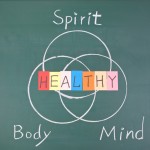 Through recent research on the brain and how it functions, scientists have discovered many things that were unknown even a decade ago, information that can help heal those, like many ex-offenders, who have gone through traumatic experiences.
Through recent research on the brain and how it functions, scientists have discovered many things that were unknown even a decade ago, information that can help heal those, like many ex-offenders, who have gone through traumatic experiences.
Although many people associate PTSD or post traumatic stress disorder with soldiers returning from places like Iraq or Afghanistan, this condition plagues many ex-offenders trying to deal with a terrible experience in prison or jail or haunted by actions that put them there in the first place.
One form of healing, the Community Resilience Model, has helped many individuals who suffered through the Haitian earthquake or were victims of the tsunami that hit Southeast Asia. And it can help anyone who has been through trauma, stress or distress of just about any type.
When someone goes through a traumatic experience, their nervous system is thrown off balance, and learning CRM techniques can help those people bring their body, mind and spirit back into balance.
Basically, everyone has a Resilient Zone where we are emotionally balanced and can think clearly and manage things well. Stressful or traumatic experiences tend to force us out of that zone, and the ability to deal with even minor stressful events may become very difficult.
Through applying CRM skills you can learn what resilience feels like, and work to restore the natural balance that was lost and feel better. CRM teaches people how to understand their nervous system and track sensations that are signs of resiliency.
Scientific research has proven that the brain can be trained to respond in ways that you would like it to, but it takes work and practice. This research has uncovered solid evidence that the birth of brain cells, a process known as neurogenesis, occurs in adults as well as children, and these changes can continue into old age. This process creates opportunities for applying CRM to rewire the brain to deepen one’s Resilient Zone, offering higher tolerance for a wide range of stressors.
Here are some of the skills that are taught by practitioners of the CRM model:
Tracking — This means becoming aware of the sensations in your body. You learn to distinguish amongst pleasant, neutral and unpleasant sensations, concentrating on the pleasant ones, so you can use them to strengthen your Resilient Zone. As you learn to describe and notice these sensations, you will have a better understanding of what your Resilient Zone is all about.
Grounding – This is another CRM skill that helps you focus on being in the present moment, when you are in contact with the ground or something that supports you, like a chair, bed or sofa. While grounded, pay attention to the pleasant or neutral sensations you are feeling, so that when there are unpleasant or uncomfortable sensations you can refocus your attention on parts of your body that feel better.
Resourcing – There are two types of resources you can rely on to help your nervous system get back in balance. External resources are positive things in your life – friends, places, pets, hobbies or whatever. Internal resources could be things you like about yourself, such as friendliness, consideration and intelligence, or beliefs and experiences that are important to you. Once you decide what your resources are, you can begin to track the sensations you feel when you think about any of them.
These wellness skills will give you a better idea of what social resilience is all about. You can learn how to apply some of them on you own by using iChill, a free app available for iPhone and Android smartphones and computers using Windows and Mac operating systems. This app can be downloaded by visiting https://www.traumaresourceinstitute.com/
For self-help skills in both English and Spanish check out:
https://www.traumaresourceinstitute.com/
For referrals to practitioners and training programs visit:


